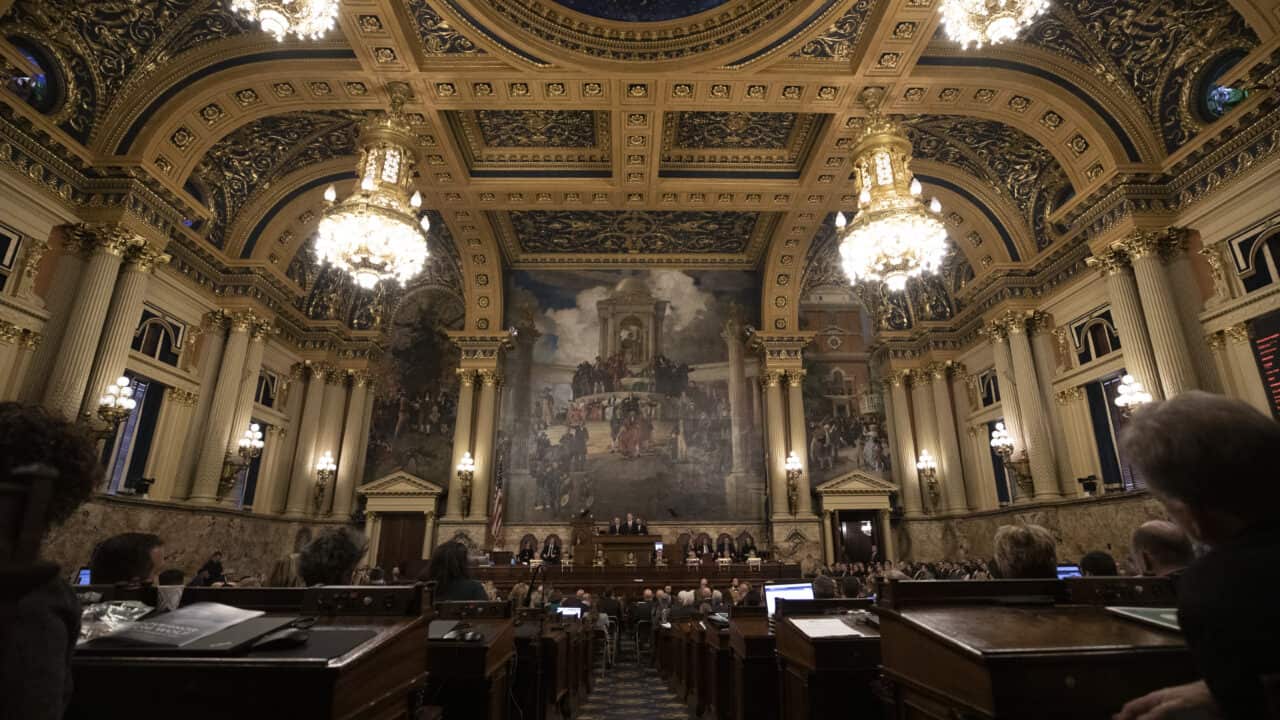 Governor Wolf Urges Legislature to Tackle Gun Violence, Student Debt, Toxic Schools by governortomwolf is licensed under CC BY-SA 2.0 via Wikimedia Commons
Governor Wolf Urges Legislature to Tackle Gun Violence, Student Debt, Toxic Schools by governortomwolf is licensed under CC BY-SA 2.0 via Wikimedia Commons
Pennsylvania’s spending levels are a concern, and as the new budget is being negotiated, Democrats are pushing for even more spending increases.
Eventually, “excessive growth” in spending threatens to inflict future tax hikes and unsustainable deficits. In 2022, for instance, state spending increased by 10.7 percent over 2021—a baseline that was already inflated by the COVID-19 pandemic. And as of this year, Pennsylvania faces a “long-term budget deficit” driven by a growth of spending that will far outstrip the growth in revenue.
By 2027, the state will run an estimated annual deficit of over three billion dollars. Due to Pennsylvania’s constitutional balanced budget provision, this shortfall must be covered either by spending cuts or higher taxes on families and businesses.
Pennsylvania currently ranks in the bottom half of states in business tax climate, a situation that will improve following the passage of cuts to the state’s corporate rate last year (these cuts will phase in over the next few years). The state also features a low, flat income tax, but other states continue to make progress reducing their personal rates. Pennsylvania’s improving tax situation must be defended, and failure to contain spending will threaten it.
Improving the tax climate is key to making the state more attractive to families and businesses, and fighting against trends of a declining population, stagnant economic growth, and falling labor force participation. As a matter of fact, any tax hikes that push more workers and businesses out of Pennsylvania could end up costing the state money overall.
Pennsylvania is in need of policies that limit spending growth and protect residents from costly tax increases down the road. Fortunately, state Representative Dawn Keefer (R) recently introduced an innovative solution to her state’s overspending problem. Cosponsored by 19 of her House colleagues, House Bill 1133 would require Pennsylvania’s Governor to employ zero-based budgeting when drafting appropriation plans for agencies.
The budgets of government agencies are typically determined by making adjustments to the prior year’s level of spending, regardless of whether that initial level is justified. In contrast, zero-based budgeting requires all expenses to be fully justified each year with no reference to previous budgets. Every function must be “analyzed for its needs and costs,” rather than blindly renewed. This clever strategy is often used by businesses to control their costs, focus their operations, and eliminate outdated initiatives.
In various other states, the promising idea of applying zero-based budgeting to government agencies has taken hold. In the past two years alone, “Zero-Based Budget Acts” were introduced in New Jersey, Rhode Island, Minnesota, Massachusetts, Maine and Oregon. Even on the federal level, U.S. Senator James Risch (R–ID) introduced a much-needed bill to introduce zero-based budgeting with the support of his fellow Republicans.
State Representative Keefer and her co-sponsors deserve praise for their leadership on this issue, and the Pennsylvania legislature would be wise to send her proposal straight to Governor Shapiro’s desk. If House Bill 1133 were to become law, Pennsylvania could finally put an end to wasteful legacy spending and bloated agency budgets. Without reform, Pennsylvanians will soon be stuck with new, punishing tax hikes in order to pay for programs that cannot be justified on their merits.

